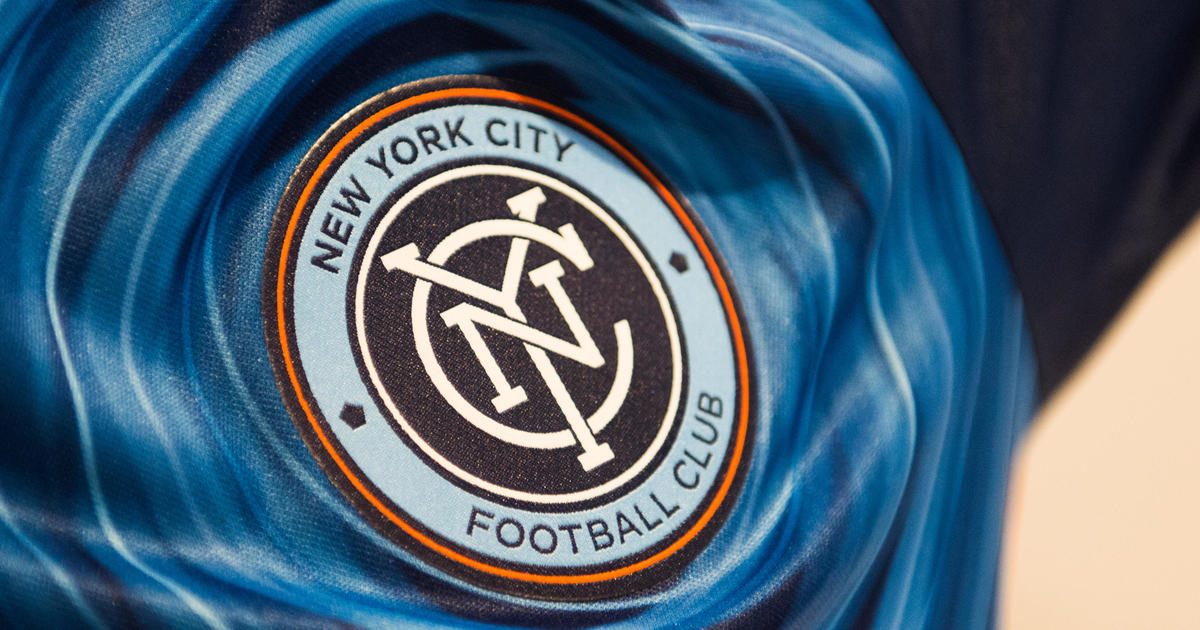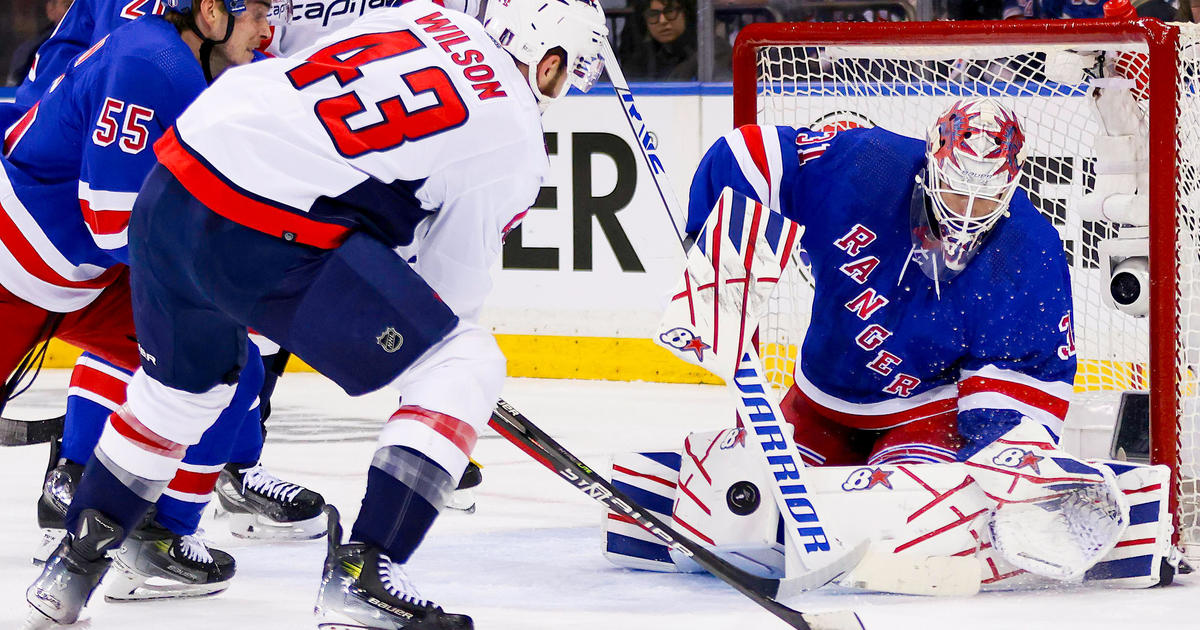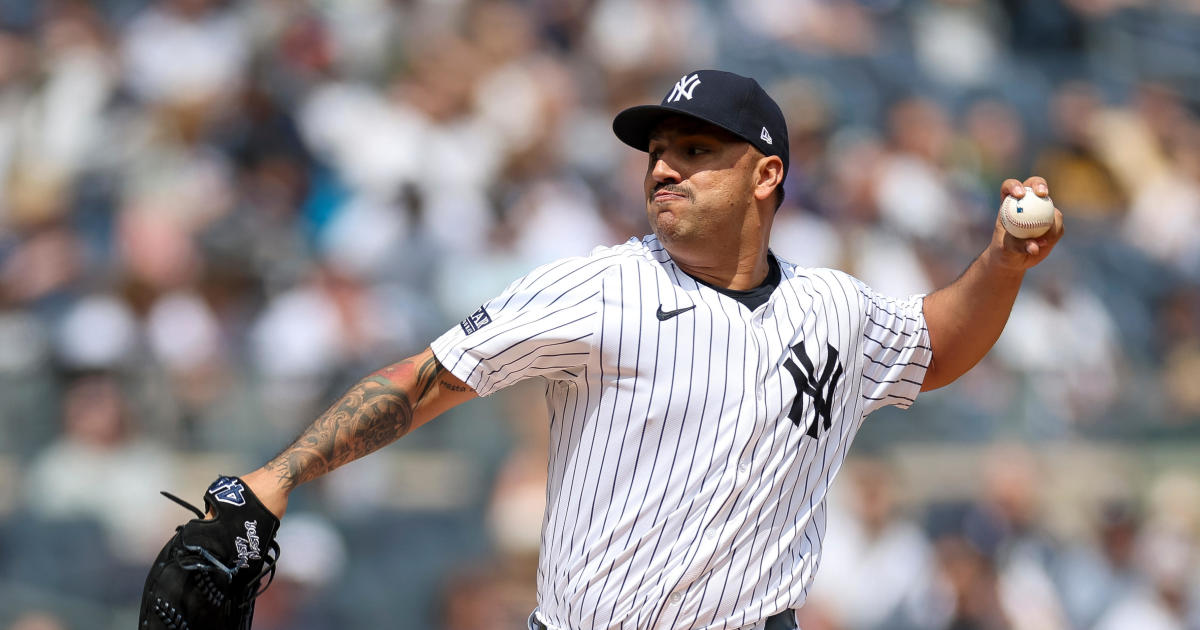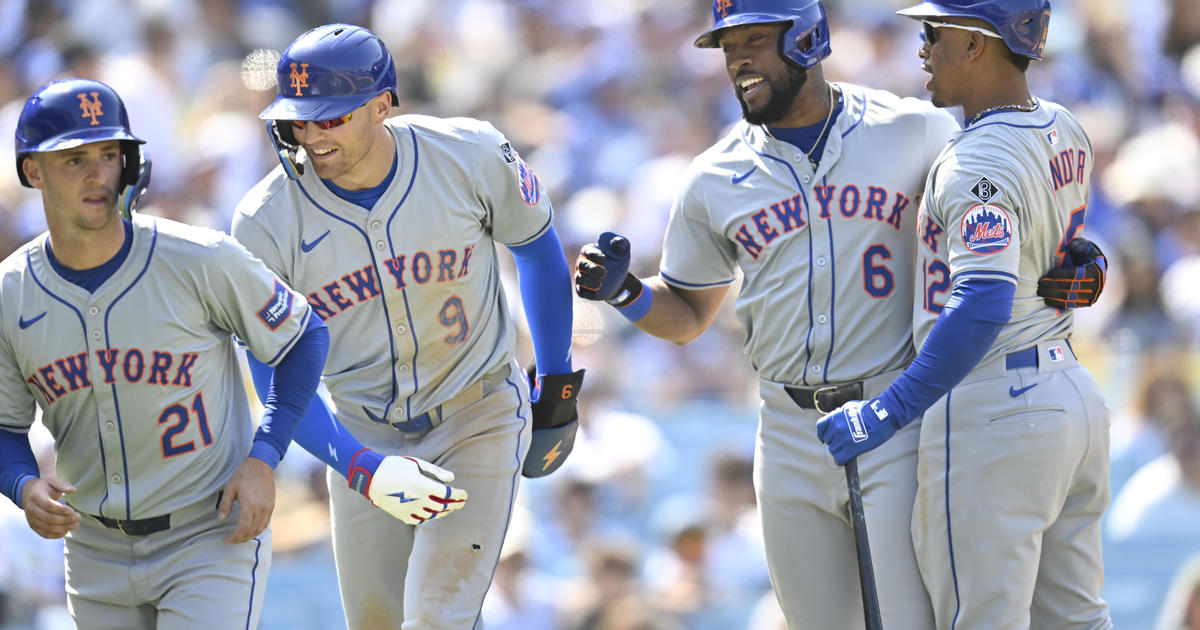Djokovic Beats Nadal For Wimbledon Title
WIMBLEDON, England (AP) — Until Sunday, Novak Djokovic never managed to win a grass-court tournament of any sort, let alone Wimbledon.
Until Sunday, Djokovic never was able to beat Rafael Nadal in a Grand Slam match, let alone a final.
Until this marvelous — and nearly perfect — year, Djokovic was very good. Now he's great.
After outrunning, outswinging and, for stretches, dominating defending champion Nadal, winning 6-4, 6-1, 1-6, 6-3 for his first title at the All England Club and third major championship overall, Djokovic crouched on Center Court, reached down, plucked some blades of grass and shoved them in his mouth.
"I felt like an animal. I wanted to see how it tastes. It tastes good," Djokovic said later, his eyes wide and his smile contagious. "It came spontaneously, really. I didn't plan to do it. I didn't know what to do for my excitement and joy."
Putting together one of the best seasons by any athlete in any sport in recent memory, Djokovic is 48-1 with eight titles in 2011, including major trophies from the Australian Open and Wimbledon. On Monday, he will rise from No. 2 to No. 1 in the ATP rankings, overtaking Nadal, a switch that was guaranteed by virtue of Djokovic's victory in the semifinals Friday.
"I want to win more Grand Slams," said Djokovic, the first man since Andre Agassi in 1992 to win his first grass title at Wimbledon. "I will not definitely stop here, even though I have achieved (the) two biggest things in my life in three days."
Which, perhaps, is why he engaged in such a lengthy and original celebration, even tossing several rackets into the stands, the sort of crowd-pleasing gesture for which Djokovic (it's pronounced JOE-ko-vich) long has been known.
Indeed, early in his career, Djokovic stood out less for his shot-making than for his showmanship — check out his spot-on impersonations of other pros, including Nadal, on YouTube — and a hard-to-explain propensity for losing, or even quitting during, late-round matches at majors.
Right now, though, the 24-year-old from Serbia is the total package, with the bona fides to prove it.
He credits a handful of factors with helping him truly excel recently: more maturity; confidence from helping Serbia win its first Davis Cup title in December; and a gluten-free diet he doesn't like to discuss in any detail.
Djokovic's only loss all season came against 16-time major champion Roger Federer in the French Open semifinals a month ago, Djokovic's seventh exit from a Grand Slam tournament in the final four.
For so many years, Federer and Nadal ruled tennis. One or the other was No. 1 every week since February 2004. One or the other won 22 of the last 26 Grand Slam tournaments, including Nadal's 10 titles.
But now Djokovic owns three of the other four trophies in that span — 2009 U.S. Open champion Juan Martin del Potro has the other — and finally elbowed his way past that pair in the rankings.
"We all know the careers of Nadal and Federer. ... They have been the two most dominant players in the world the last five years. They have won most of the majors," Djokovic said. "So sometimes it did feel a little bit frustrating when you kind of get to the later stages of a Grand Slam — meaning last four, last eight — and then you have to meet them. They always come up with their best tennis when it matters the most. ... I always believed that I have (enough) quality to beat those two guys."
Djokovic was 0-5 against Nadal at Grand Slam tournaments entering Sunday — including retirements from a 2006 French Open quarterfinal and 2007 Wimbledon semifinal.
A more significant head-to-head record, though, is one both men acknowledged played a role Sunday: Remarkably, Djokovic is 5-0 against Nadal this year, all in tournament finals, two on hard courts, two on clay courts, and now one on grass.
"When one player beat you five times, (it's) because today my game don't bother him a lot," Nadal said after his 20-match Wimbledon winning streak ended. "Probably, the mental part is little bit dangerous for me."
That showed at the first key point, 40 minutes into the final. Djokovic led 5-4, but neither player was having the least bit of trouble holding serve. Nadal went up 30-love in that 10th game, but Djokovic then won four consecutive points to claim the first set.
"Rafael was too nervous at that big moment," said Toni Nadal, the player's coach and uncle.
Djokovic ran away with the second set, by doing precisely what Nadal has to so many opponents: sprinting to chase down apparent winners and get them back over the net, extending the point. According to the AP's tally, Djokovic won 18 of the match's 28 points that lasted 10 strokes or more.
"When you play against these players, and they are playing unbelievable, the normal thing is (to) lose," said Nadal, who punched his racket after missing one forehand in the last game.
Djokovic's forehand was mostly on-target. He hit 22 winners and only four unforced errors through two sets, and never faced a break point — or even was taken to deuce — on his serve during that span.
But there was no way it could continue to be that easy, both because Djokovic simply couldn't sustain that level of spectacular play forever, and because the resilient Nadal wasn't likely to pack it in.
As gray clouds began to gather overhead, shutting out the azure sky, Nadal picked up his game, and Djokovic finally faltered somewhat, saying later: "I relaxed a little bit too much in the start of the third set. I wasn't focused."
Nadal broke twice in that set, the second time when Djokovic contributed his lone double-fault of the afternoon, and suddenly it appeared that things were more competitive. As it turned out, the third set was merely a half-hour aberration during a 2½-hour coronation, because Djokovic regained the upper hand.
He led 4-3 in the fourth set when Nadal played a shaky game, double-faulting, pushing a backhand wide, then slapping a forehand into the net on an 11-stroke point that Djokovic kept alive by sliding into position and nearly doing the splits while hitting a backhand.
That gave Djokovic three break points, and on the second, Nadal missed a backhand on the 15th stroke.
Now with a chance to serve it out, Djokovic was cool and composed — and even a little crafty, playing serve-and-volley for only the third time all match. His backhand volley gave him a championship point, and Djokovic converted it when Nadal sent a backhand long.
As Djokovic reveled in his newfound status as Wimbledon winner, Nadal was left to contemplate his first loss to someone other than Federer in a Grand Slam final.
During this tournament, Djokovic recalled watching Wimbledon two decades ago as a kid in war-torn Serbia and thinking that he'd love to play tennis. On Sunday, there he was, on the most famous court in the world, with Serbian President Boris Tadic up in the Royal Box.
Djokovic already was the first man from Serbia to win any Grand Slam title. Now he's the first to win Wimbledon and the first to earn the No. 1 ranking, and he'll be feted at a downtown square in Belgrade on Monday.
Whatever Djokovic had to overcome — a lack of self-belief and fitness issues, among them — the biggest obstacles might very well have been a couple of guys named Federer and Nadal.
"It's very hard for four years to be No. 3, you know? You cannot (make this) step, this one step to move on. Now he did it, so this is the most important thing," Djokovic's mother, Dijana, said Sunday evening.
When a reporter began a question by saying, "For years, it's been Rafa, Roger, Rafa, Roger," Mom interrupted to clarify: "Yeah, now it's Novak, Novak, Novak."



